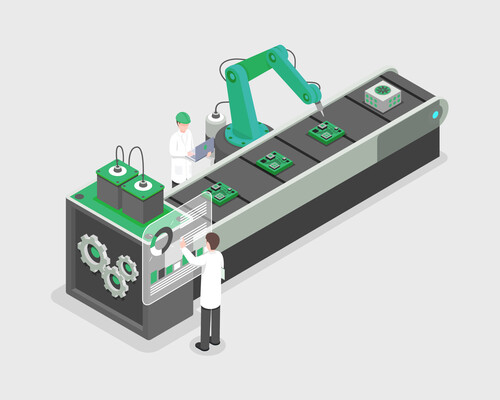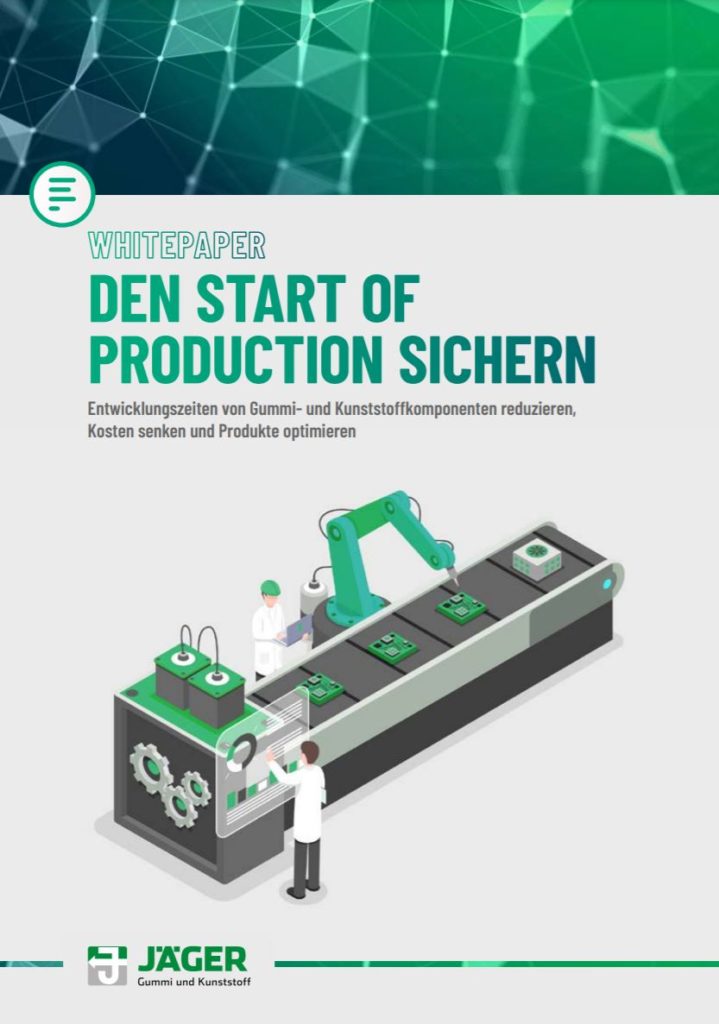
JÄGER Business Blog


WHITEPAPER
Find out which factors influence your SOP!
On June 11, 2021, the German parliament passed the German Supply Chain Due Diligence Act (colloquially Supply Chain Act – SCA). It regulates the responsibilities of companies for human rights violations and environmental damage along their supply chain. The law will come into force on January 1, 2023, followed by a tightening of requirements on January 1, 2024.
Decision-makers in numerous industries are currently developing strategies to meet the requirements of the SCA as efficiently as possible while minimizing the impact on their economic activities. This also affects the rubber industry.
The SCA applies to all companies that have their headquarters in Germany and employ at least 3,000 people there. From January 1, 2024, this threshold will drop to 1,000 employees. At first glance, this means that the law only applies to large companies, as small and medium-sized enterprises usually do not reach the minimum number of employees. At this point, however, there are two factors to consider.
The European initiative is to apply to all companies that earn the majority of their revenue in the EU and employ at least 500 people. In industries with a high risk of harm to people and the environment (e.g. mining or textiles), this threshold drops to 250 employees. As soon as the law is passed, companies that were previously exempt under German law will fall within its scope.
Production companies that source rubber and plastic components externally should therefore expect to come into direct or indirect contact with the Supply Chain Sourcing Obligations Act.

Human rights form the basis of the Supply Chain Act
According to the Supply Chain Act, companies must anchor appropriate preventive measures toward their direct suppliers. These include contractual requirements for human rights compliance as well as consultation, training and monitoring. In contrast, they only have to respond to rights violations by indirect suppliers along their supply chain if there is a concrete suspicion.
Direct suppliers of rubber processing companies are primarily raw material traders from whom they purchase raw rubber and additives such as sulfur. As a rule, small and medium-sized companies do not buy directly from producers in Southeast Asia, but from raw material exchanges that aggregate intermediaries.
For technical reasons, tracing the goods back to the rubber extraction site involves a great deal of effort. Therefore, this part of the rubber supply chain is currently still exempt from the requirements of the Supply Chain Act. However, this will change in the foreseeable future. As soon as technology has caught up and efficient tracing of raw materials is possible, rubber processing companies will have to deal with the working conditions on rubber plantations.
Risk factors in rubber cultivation are primarily forced and child labor as well as environmental damage caused by overexploitation, soil erosion, slash-and-burn clearing of virgin forests or careless use of pesticides. For the most part, European rubber producers already outlaw such practices. However, as the Supply Chain Act provides for corporate responsibility for ethically questionable business practices along the supply chain, it becomes necessary to structurally record and regularly review these risks.
Rubber is not the only component of an elastomer. Depending on the desired properties of the product, fillers, plasticizers and processing aids are also added, among other things. Rubber producers and their customers must also keep an eye on the extraction and trade of these materials as part of their supply chain monitoring.
The SCA prescribes a number of measures to prevent ethically questionable business practices along the supply chain. These essentially include the issuance of a policy statement, internal risk analyses, systematic risk management, the establishment of a complaints procedure, and documentation and reporting to third-party bodies.
Implementing prevention and documentation measures on an internal level is readily achievable for most large and medium-sized rubber producers as well as their customers. They can also manage the monitoring of direct suppliers with manageable effort, especially if they are based in the EU and thus operate within the same legal framework.
The real challenge is the monitoring of indirect suppliers, i.e. Tier 2 and higher. The most important growing areas for rubber are in Thailand, Indonesia and Vietnam. In most cases, the harvest is done by hand by small farmers who sell their goods to local middlemen. These structures prevent European companies from exerting direct influence on rubber mining. There are no central actors with whom they can interact. Maintaining contact with a large number of small farmers over such a long distance is simply not practical.
Under such conditions, monitoring the entire supply chain is hardly possible for small and medium-sized rubber producers. Instead, it is conceivable that international industry associations could inspect suppliers on site and issue certificates that companies could refer to. In this way, European producers could outsource part of their supervisory duties and thus reduce their expenses. The extent to which this approach satisfies the requirements of the SCA remains to be seen.
Both the German Supply Chain Act and the EU draft pose challenges for the logistics of rubber processing production companies. On the one hand, the obligation to provide information to authorities and customers increases the administrative burden. On the other hand, monitoring indirect suppliers in Southeast Asia is currently difficult for small and medium-sized organizations.
However, these problems can be solved. New technologies and cooperation with interest groups will, over time, ensure that European companies can interact better with international business partners and more easily meet their due diligence obligations. The rubber industry is therefore well prepared to assume its responsibilities and combat human rights violations and environmental degradation around the world.

Whitepaper: Secure the Start of Production
Learn which factors influence your SOP!

Ralf Aumann heads the Supply Chain Management division at Jäger. As a graduate in production engineering and mechanical engineering, he joined the company in 2010 after holding several positions in the automotive industry.
Share post now!
Jäger Gummi und Kunststoff GmbH
Lohweg 1
30559 Hannover
Tel. +49 511 – 53580
Fax +49 511 – 553394
info@jaeger-gk.de
Management:
Dr.-Ing. Andreas Jäger und
Julius Jäger
Hanover Register Court HRB 59798
DE 813 314 161